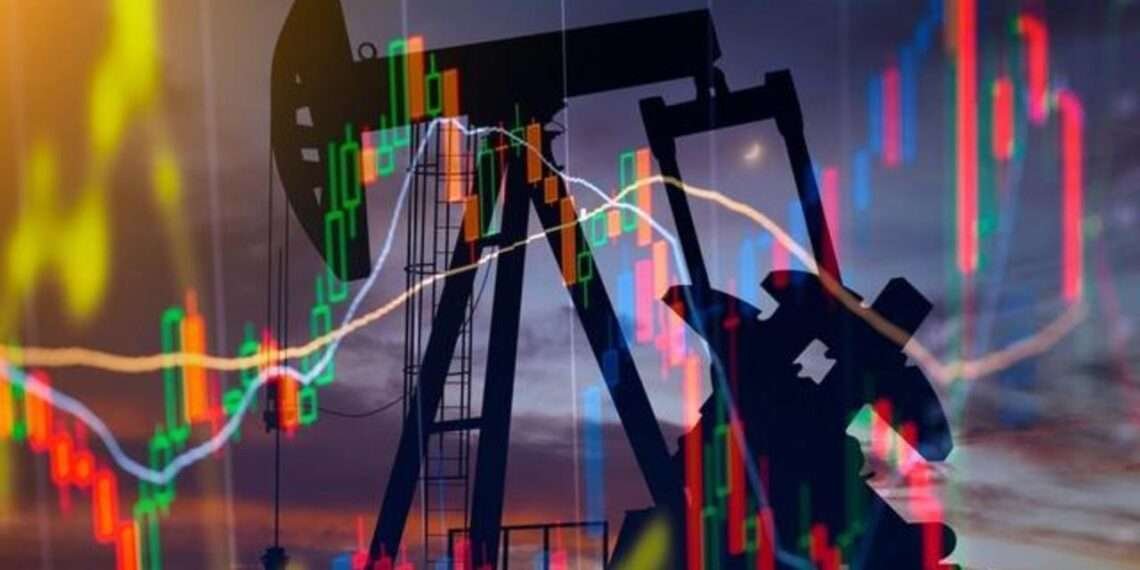Industrialization certainly does bring its own perks and downsides, but when the cons outweigh the benefits, it undoubtedly becomes a global ‘party pooper’.
No one grudgingly harbors thoughts of conflicts, but when it happens, all hell literally breaks loose and that is where the often neglected linkage of commerce, trade and industry unravels the ‘Siamese’ nature of countries globally.
In the end, all economies come to realize that there isn’t much of a difference in their aspirations and ideals.
Petroleum and oil products, popularly known as black gold is the truth in not only mega sized industries and corporations, but equally provides comfort and convenience in a homey hamlet as well.
Now, when the producers of such vital and ‘rare’ commodity experience the littlest of ‘tremor’ everything else buckles at such undue pressure, and this is particularly obvious in the ongoing Israel-Hamas conflict.
The World Bank in its October 2023 Commodity Market Outlook outlined the potential consequences of an escalating Middle East (Israel-Hamas) conflict on oil prices.
It has identified the possibility of oil prices surging beyond $150 per barrel, a scenario that could lead to significant increases in both energy and food prices, reminiscent of the price spikes witnessed a year earlier due to the Russian invasion of Ukraine.
Reacting to the imminent escalation of oil prices, Energy expert, Dr Yussif Sulemana, revealed that World Bank’s projections are not out of place, and it is something policy makers will have to stand by and plan ahead of time.

This, he explained, is because per historical antecedents following Israel and Palestinian conflict, if the current trend of conflict persists, then there isn’t bound to be any impact on global oil prices at the moment.
Nonetheless, Dr Sulemana stated that if experts indulge in any miscalculations of the conflict, there could be unintended consequences whereby there’ll be escalation that nobody expects which will translate into a regional conflict.
“As we speak now, we are gravitating towards that – all regional players are on high alert. If it turns to Israel-Arab conflict, then that becomes serious… I don’t think the global energy community is ready for any oil prices in the three digits because even as we speak now, even oil in the 90’s, we are struggling to cope with inflationary pressures.
“So, yes, the Russia crisis season is not yet over, in fact, that’s actually accountable for why oil is in the 90’s and if we should have this conflict escalation proportion that is unimaginable, then we’re going to have a double warning and I don’t think the global energy community may be ready for that…”
Dr Yussif Sulemana
Implication of Israel-Hamas war on developing countries
Touching on the implication of an escalation of the war, Dr Sulemana noted that there’s going to be a “huge” impact especially for vulnerable economies like the developing nations and the African continent. He explained that this group is mostly made up of import-dependent nations.
“So, we are going to have it in two-perspectives. Those who are heavily dependent on oil or petroleum product imports and we have any disruption in the flow, from the East to the West, that’s going to be huge and pump prices is something that we cannot arrest and that will translate into inflationary pressures…”
Dr Yussif Sulemana
Furthermore, Dr Sulemana argued that the indirect impact of the war escalation would mean that because it’s a global phenomenon, all economies will put in measures to be able to stem the tide.
He revealed that the western world, is not going to relent on its efforts to put the cap on inflationary pressures.
“What they do is that they will go back to increase in policy rates and when policy rates within these global western economies increases, their currencies get strengthened and when that happens, the direct impact on our own currencies is going to be dire.
“So, if we have inflationary pressures going up, we’re going to be impacted within our pumps. If we have currency fluctuations in terms of this global economies such as US and the European Union, that will have a huge impact on our currencies.”
Dr Yussif Sulemana
From all indications, the developing countries will be literally left out in the cold if the war prolongs and the western world decides to insulate itself from the effect and aftermath of the war.
Potentially, and particularly in Ghana, when oil and petroleum prices go up, what the consumer pays at the pumps, coupled with the currency on the exchange rate will be a deciding factor for the health of the economy.
Right now, government believes that the economy is on a path to recovery, and Ghanaians can only wait on the edge of their seats and hope the gains don’t end up in an economic sinkhole.
READ ALSO: Parliament Summons Health Minister Over Closure Of Korle-Bu Renal Unit



















